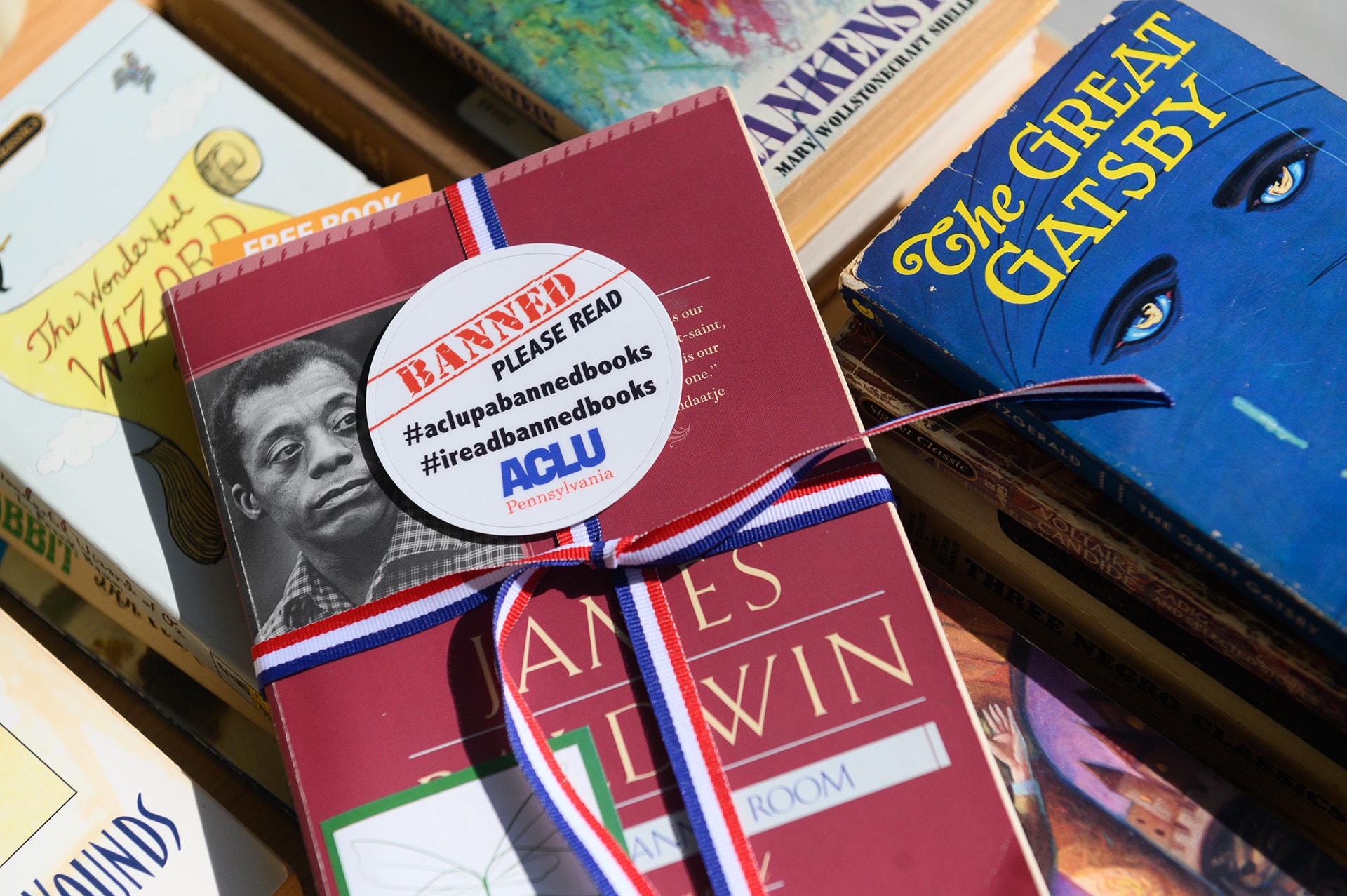Department of English Puts Spotlight on Banned Books
By Heidi Opdyke
Media Inquiries- Dietrich College of Humanities and Social Sciences
- 412-268-1788
Earlier this month a Catholic school in Nashville removed the popular Harry Potter series from its shelves, claiming that the magic spells in the book could be used to conjure spirits in the real world. This is exactly the kind of restriction on reading that librarians and humanists across the country seek to draw attention to during Banned Books Week, which begins Sept. 22.
"Every year the American Library Association tracks the number of challenges that come into school and public libraries and school curriculum," said Kathy Newman, a professor of English and literary cultural studies at Carnegie Mellon University. "Around 300-500 books are challenged annually."
Kathy Newman is a professor of English in the Dietrich College of Humanities and Social Sciences.
The 2018 list includes books such as "The Hate U Give," by Angie Thomas; the "Captain Underpants" written and illustrated by Dav Pilkey; and "A Day in the Life of Marlon Bundo," by Jill Twiss. Many classics also have been banned, such as "Frankenstein," "A Catcher in the Rye," "To Kill a Mockingbird," "A Wrinkle in Time" and "Huckleberry Finn."
"At this point in the U.S. most people don't risk their lives for what they write, but they do in some other countries," Newman said. "One of the reasons that banned books week is so important is that we need to keep a spotlight on individual as well as group attempts to restrict free speech and restrict our freedom to read. And it's by shining a spotlight, I think, that we can help to maintain the freedoms we value."

CMU students handed out banned books through a partnership with the Book Fairies of Pennsylvania on Friday, Sept. 20.
Books in the Classroom
Carnegie Mellon regularly teaches a course about banned books.
Kitty Shropshire, a doctoral student in the Department of English's Literary and Cultural Studies Program, is teaching the course this semester. She said the course is important because it allows us to see the ways in which novels and other forms of art reflect broader social issues and concerns.
"When a book becomes controversial, people attempt to stop other people from reading it - it indicates there's something in that book that is connecting to other issues," Shropshire said. "It's a way to use novels to talk about society in a broader sense."
This semester the course is studying "The Bluest Eye" by Toni Morrison, "The Handmaid's Tale" by Margaret Atwood, "Go Tell it On the Mountain" by James Baldwin, "The Absolutely True Diary of a Part-time Indian" by Sherman Alexie and "Fun Home" by Alison Bechdel.
Students who take the course come from colleges and schools across Carnegie Mellon.
"People take the class generally because they love reading and they want an opportunity to do that in a classroom setting. To discuss ideas the novels present them with other people who love reading," Shropshire said. "There is a real desire for students who are not in the humanities to have access to the kind of rigor and cultural analysis that we do in this classroom."
This semester the course is inaugurating the Banned Books project. Students are researching banned books and sharing information about them via a website.
"CMU's emphasis on connecting to the world outside the university has allowed that," Shropshire said.
Shropshire joined Carnegie Mellon as a graduate student because she said the Department of English offers one of the best cultural studies programs in the country. She's studying the relationship between politics and media.
"I look at the way that historically conservative groups have built alternative media ecologies and the role that creative work plays in building those spaces," Shropshire said. "So this class helps me understand the importance of cultural texts to the groups that I'm studying and the way that groups weaponize culture in service of other political arguments."